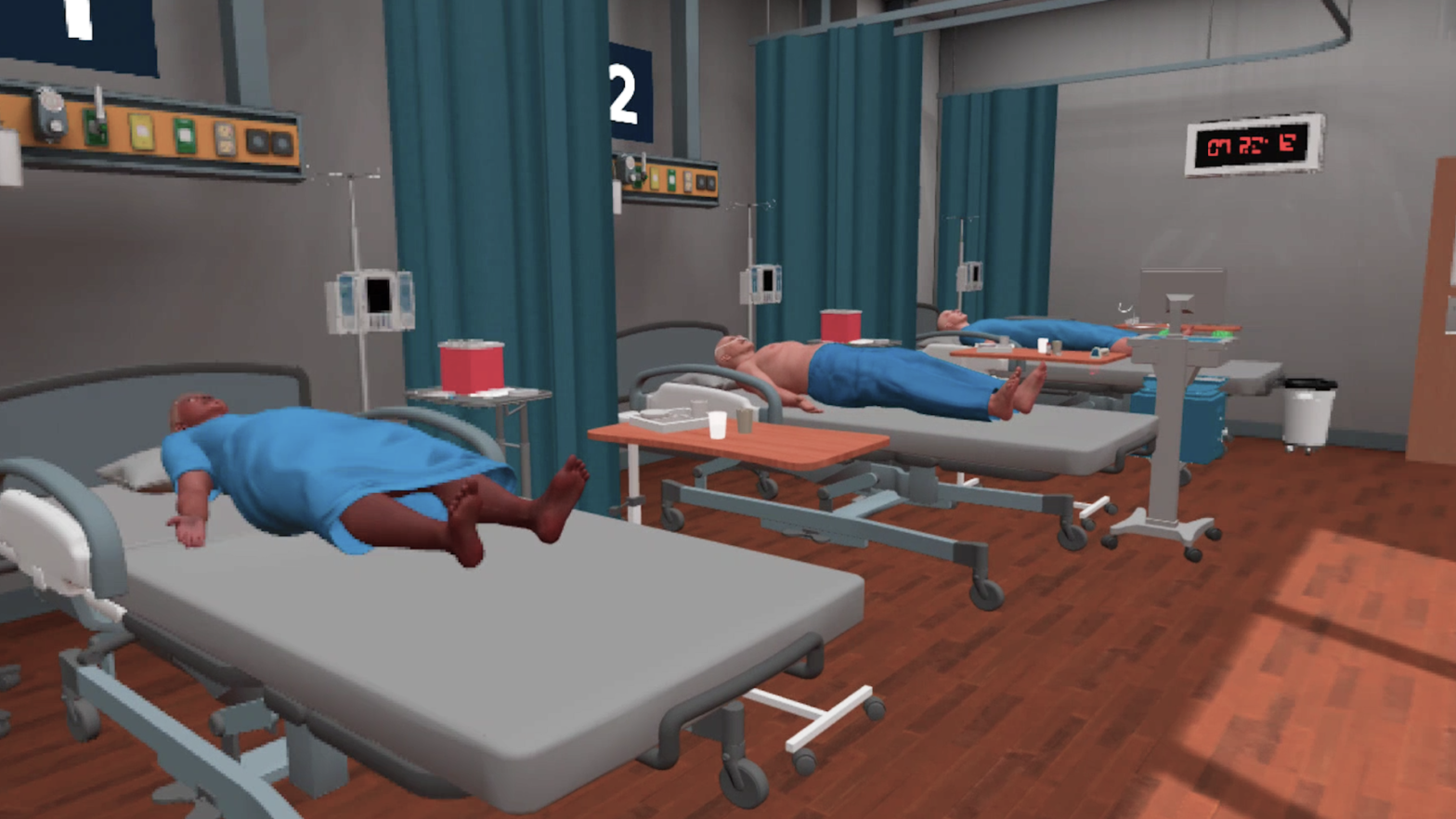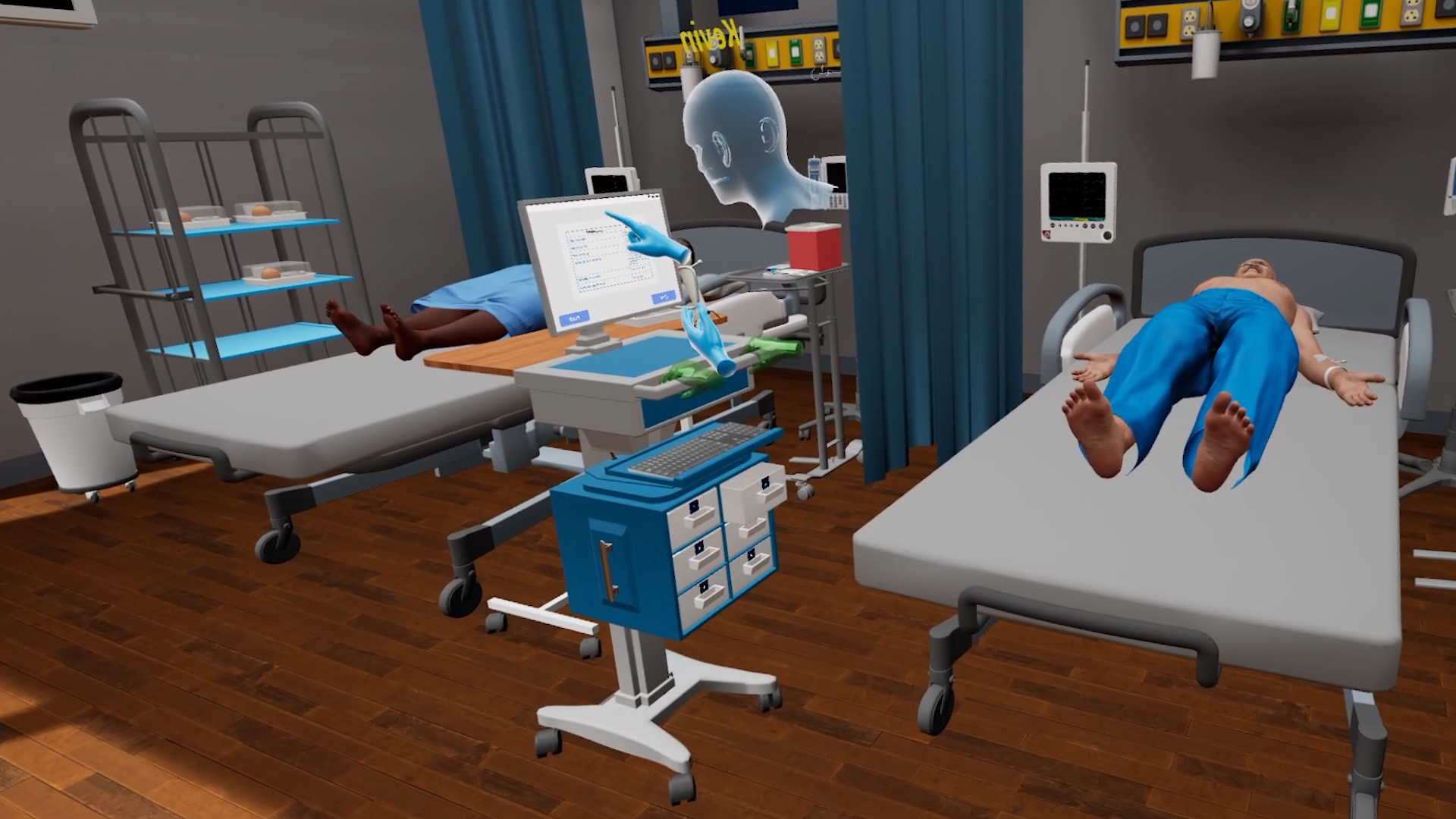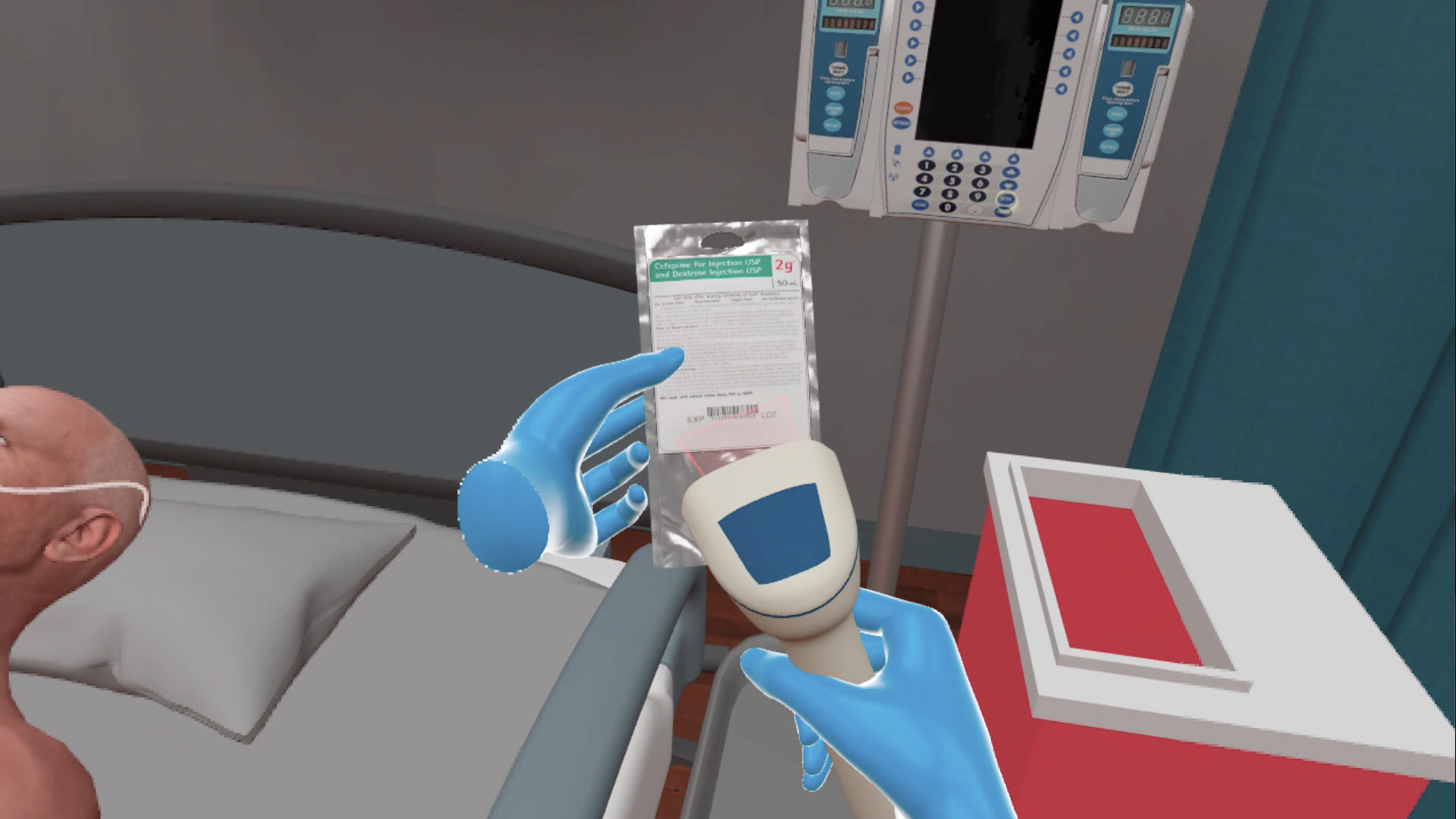Multipatient in VR
You are a new nurse starting in a medical/ surgical unit. You start your shift by getting reports from the off-going nurse. After this, it is up to you to make sure all patients are taken care of, and all tasks are completed within the morning shift. In this learning module there are 3 patients with 3 different admitting diagnosis that you will be expected to complete all tasks on.
During the shift, it is essential to ask each patient the appropriate questions for that patient’s diagnosis to get a proper understanding of their health condition.
This multiplayer VR session is designed to help nurses perform nursing shift duties with accuracy and efficiency.
- Complete a nursing shift assessment in a timely manner
- Identify and prioritize patients based on their acuity level
- Apply clinically approved techniques to administer medications
- Effectively evaluate each patient’s signs/ symptoms and pain level
- Interpret and explain all abnormal vital signs and fingerstick glucose results to the patient

- Agency for Healthcare Research and Quality (AHRQ). (2019). Patient rounding toolkit. Retrieved from https://www.ahrq.gov/patient-safety/resources/rounding-toolkit.html
- American Nurses Association (ANA). (2021). Nurse staffing and patient care quality and safety. Retrieved from https://www.nursingworld.org/practice-policy/nurse-staffing/
Customize Your Program
Get rid of the editor. Adopt in-VR customization.
MedVR Education is bringing to you in-VR customization that will enable you to customize your procedural simulations by making selections from a range of feature choices.
- Select patient from a diverse background
- Choose preferred virtual environment
- Configure patient vitals
- Define simulation duration
- Create patient history and train with AI-Humans
- Customize session-end debriefing
- …..many more to come

 Multi-playerSessions
Multi-playerSessions Physics-based Interactions
Physics-based Interactions
Core Skills Training

Multi-patient Morning Shift
As part of this open scenario, the learner is expected to communicate with the patients and enquire about their signs and symptoms and pain level. The learner will perform hand sanitization, check the patient’s vitals, perform a nursing shift assessment and fingerstick glucose checks. All necessary affordances are made available to learners to help them complete the process with efficiency.
Debriefing
End-of-task debriefing to assess one’s performance, evaluate actions, and get the most out of the training. Examples of topics being touched upon in the debriefing include the following:
- Thorough patient assessment
- Completion of necessary steps
- Correct medication administration to patients
- Sequential completion of tasks
- Completion of therapeutic communication between nurse and patients







